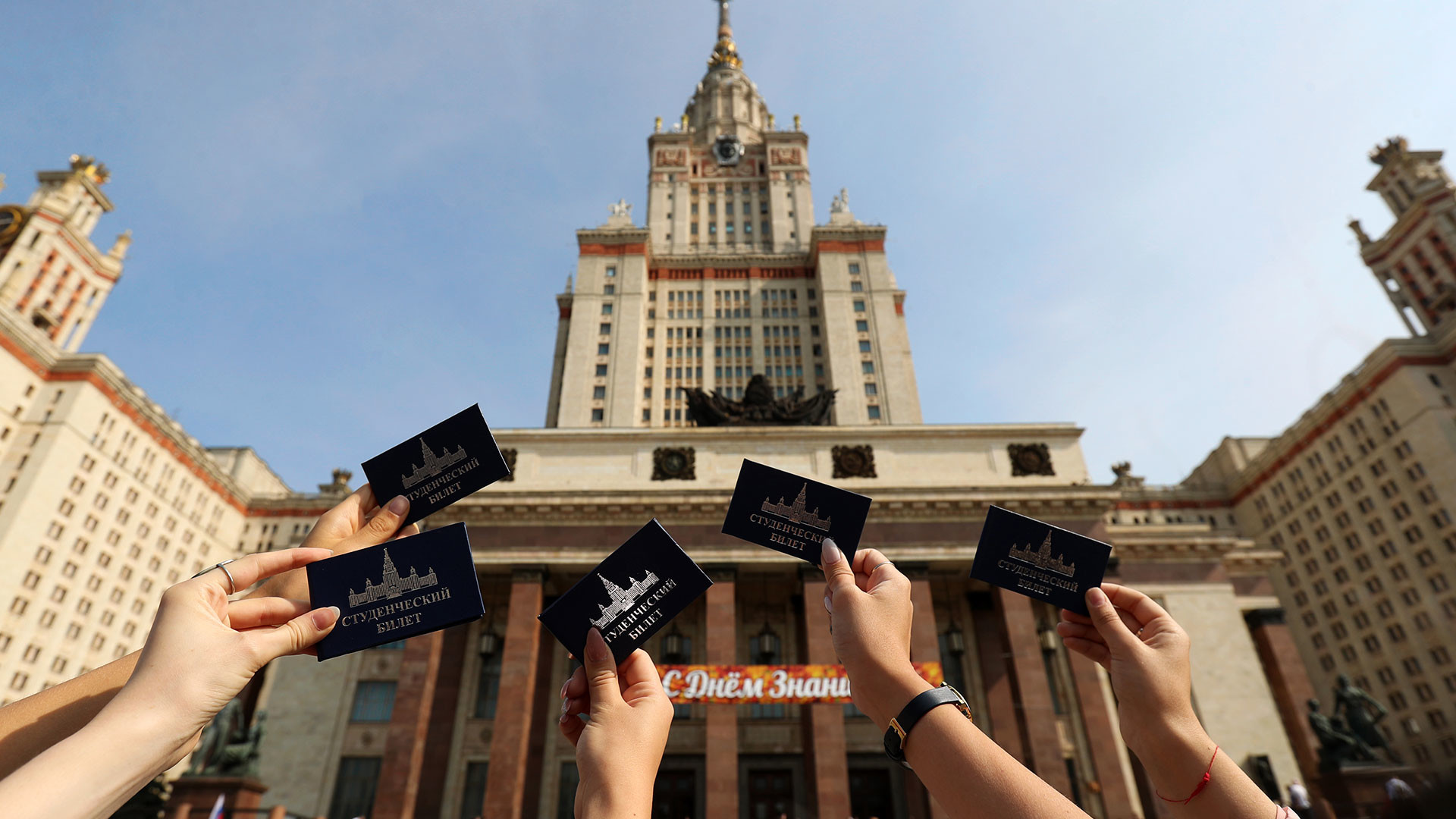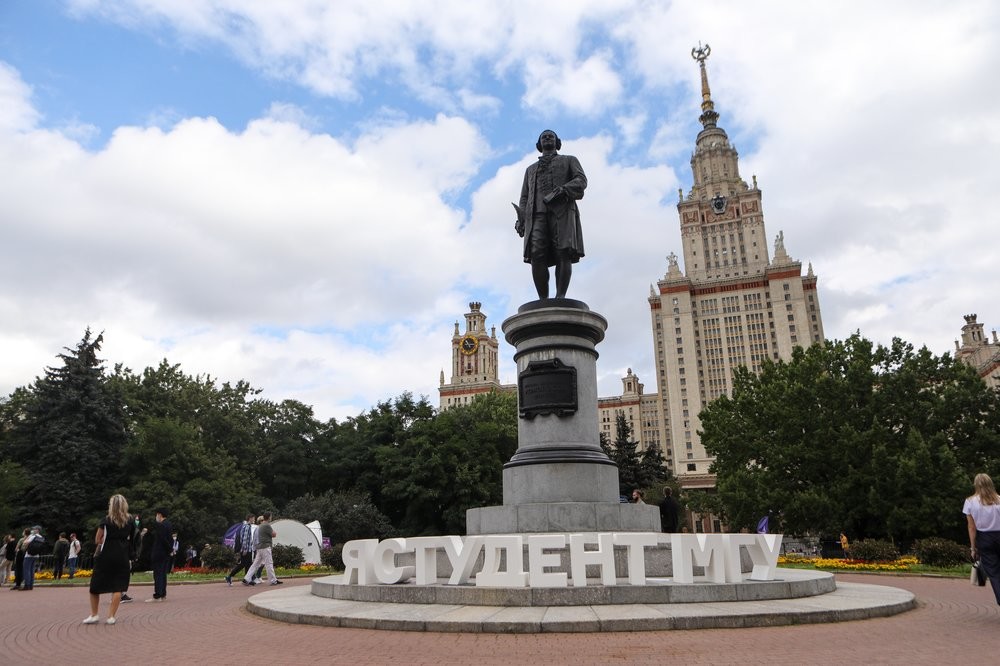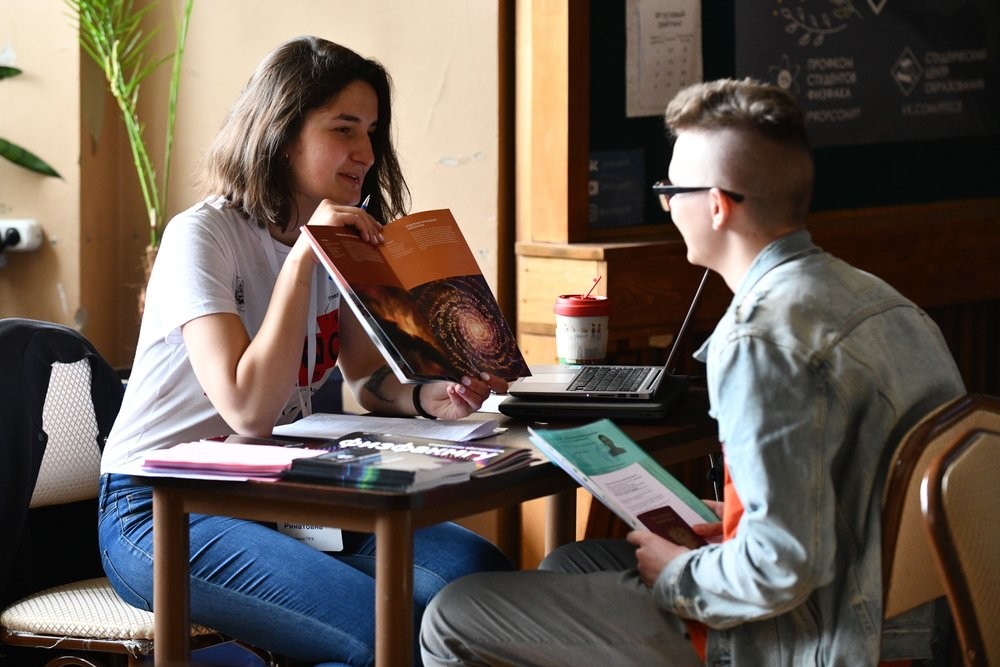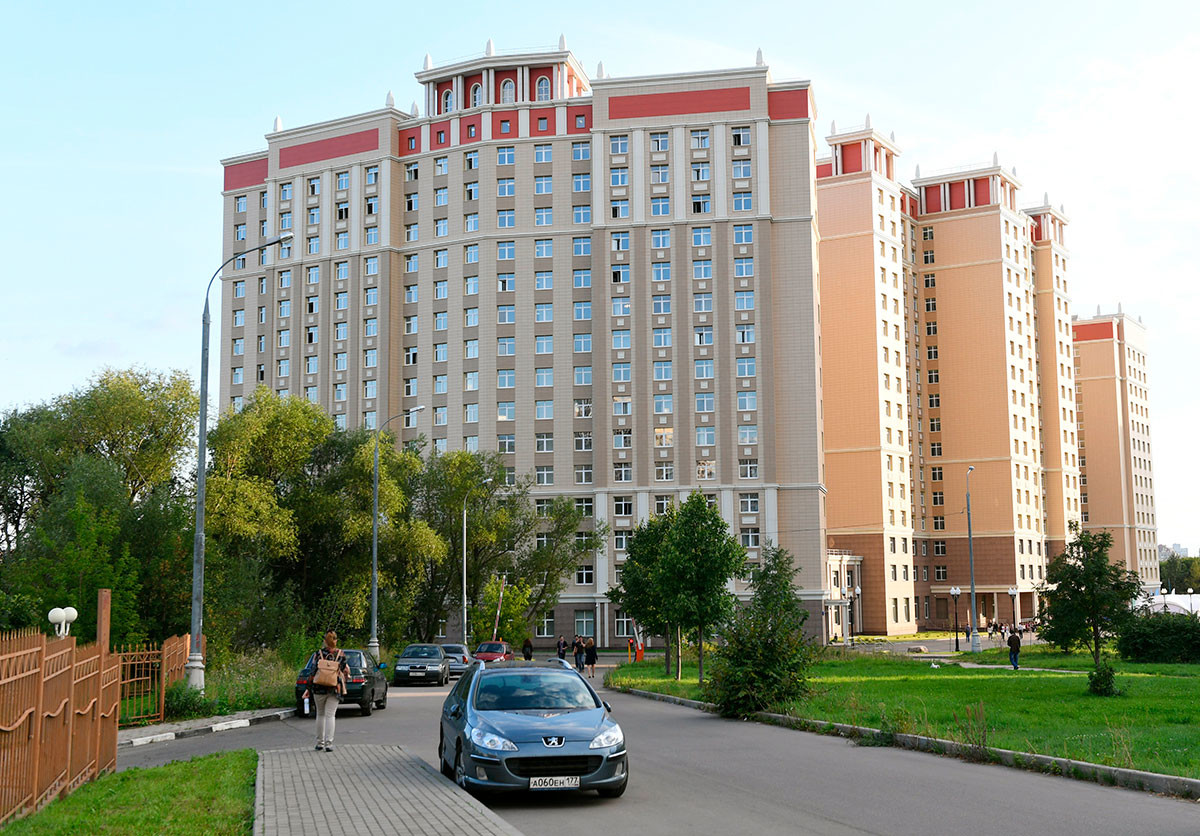How to enroll at a Russian university using the education-in-russia.com website

The Federal Agency Rossotrudnichestvo has launched a new website on which any foreign national can fill in an application online to study in Russia - https://education-in-russia.com/.
“This new service, a one-stop shop, is designed to provide a completely transparent process - from submitting an application and the various stages of the admissions process to visa and migration support,” the agency said in a commentary to TASS.
Prospective students have 741 educational establishments throughout Russia to choose from. The program provides for three forms of study - on-campus (full-time), mixed on-campus/off-campus (part-time) and off-campus (extramural). Students can receive secondary vocational education at Russian colleges, or enroll at a Russian university to study for bachelor’s, master’s or specialist degrees, or enlist for postgraduate courses, postgraduate military courses, medical internships or assistantships.
“After receiving your diploma, you can continue your education by pursuing doctoral studies, going on refresher courses or completing professional retraining programs,” according to the website.
Applying
An application for admission should be completed via a personal account on the website. To do this, prospective students need to select in advance at least six universities where they would like to study and decide on the level and form of study. The following documents should be attached to the main application:
- A copy of a passport or other document confirming the applicant’s identity;
- A copy of the applicant’s education certificate;
- A completed form;
- A photograph against a white background.
The selected universities should be listed in order of priority. All documents should be translated into Russian in advance and certified by a notary or consul. Some universities may require additional documents and prospective students should check for this information on the website of the university in question or its admissions department.

Lomonosov Moscow State University (MSU)
Andrew Nikitichev/The Moscow AgencyProspective students should also work out in advance what the university’s tuition fees are going to be - these can be found on the website of each institution. Foreign nationals can pay for their studies with their own funds, receive funding from endowments or private companies, or be awarded a scholarship (quota) of the Russian government. Every year, up to 15,000 foreign students enroll at Russian universities on government quotas. To apply for one of the competitive scholarships, you need to write to the Rossotrudnichestvo representative office or Russian Federation consular office in your country of residence.
Two-stage selection process
As a rule, the process of entry to a Russian higher educational establishment consists of two stages - an initial qualifying test in prospective students’ “home” countries and an entrance exam at the institution itself.
After submitting an application, prospective students receive information about the qualifying stages via their personal user account. They then have to register for an interview or qualifying test and these have to take place within a specified time. The future student is subsequently awarded marks which assign them a position in the overall ranking of candidates in their country of residence. If his grades are adequate, they are informed of this via their user account and will receive a notification about moving to the second stage of the selection procedure.

The second stage can take place either remotely or at a higher educational establishment inside Russia. If the prospective student’s personal presence is required, they will need to obtain a visa, purchase tickets and come to the country for a test on the dates allotted by the institution. All the details of the visit need to be finalized with the respective higher educational establishment.
On arrival in Russia, the prospective student must have a complete package of valid documents. All the documents must be translated into Russian and notarized:
- Notification of acceptance for the course
- Document certifying identity and citizenship
- Educational certificate indicating qualification (degree) obtained, subjects studied and grades awarded
- Medical certificate confirming absence of HIV infection or any contraindications against studying in Russia
- Photograph (format to be specified by the institution).
The documents may require legalization in their country of issue - this means that a Russian Federation consulate has to append a special stamp confirming the documents are genuine. Information about the need for legalization can also be obtained at a consulate or representative office of Rossotrudnichestvo. If the prospective student’s home country is a member of the Hague Convention, an apostille - a special stamp confirming the authenticity of documents - can be obtained.
Student visa and maintenance
Once a student has been accepted, the higher educational establishment or the Foreign Ministry will issue an invitation for study in Russia. On receiving it, the foreign student will need to obtain a student visa, something that can be done at a Russian Federation embassy or consulate.
“A visa is not required for applicants from a number of countries with which Russia has concluded a visa waiver agreement, while citizens from Belarus, Kazakhstan, Armenia, Kyrgyzstan and Ukraine can additionally enter the country without a foreign passport,” according to the site.

The work of the admission Committee of Moscow State University
Igor Ivanko/The Moscow AgencyOn arrival in Russia, the student will have to take out a voluntary medical insurance policy. The policy, which costs 4,000-12,000 rubles (approx. $52.70-$158), will cover treatment in a number of the country’s outpatient clinics.
Universities also provide accommodation for intramural students at a cost that broadly ranges from just 300 rubles to 10,000 rubles (approx. $3.95-$131.83) per month, depending on the institution.
Russian language exam
Lectures and seminars in the majority of Russian higher education establishments are conducted exclusively in Russian. That is why the portal also offers language instruction at language schools, via remote learning or at preparatory faculties.
Certain educational establishments also require that a special examination in the use of Russian be passed - Test of Russian as a Foreign Language (TORFL).
The test takes place over two days and consists of six parts:
- Vocabulary
- Grammar
- Reading
- Listening
- Writing
- Speaking
It costs around 5,500 rubles (approx. $72.5) to sit the exam, which can be taken at any accredited TORFL center throughout the world. An exam lasts between 3.5 and 5 hours and a certificate is issued to anyone awarded at least 66 percent in each part of the test.

Buildings of the student campus of Lomonosov Moscow State University
Ekaterina Chesnokova/SputnikFor an additional payment, students are given the opportunity to re-sit any part of the test in which they failed to attain a sufficient mark. The TORFL can also be taken at the following Russian higher educational establishments:
- Volgograd State Socio-Pedagogical University
- Pushkin State Russian Language Institute
- Kazan (Volga Region) Federal University
- Lomonosov Moscow State University
- Moscow State Pedagogical University
- Tomsk National Research State University
- Penza State University
- Pskov State University
- Herzen State Pedagogical University of Russia
- Peoples’ Friendship University of Russia
- St Petersburg State University
- Tyumen State University
- South-West State University
If using any of Russia Beyond's content, partly or in full, always provide an active hyperlink to the original material.
Subscribe
to our newsletter!
Get the week's best stories straight to your inbox